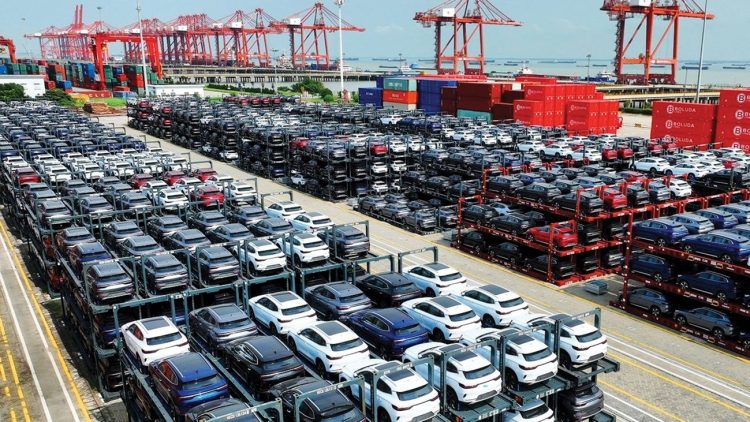Publisher: Maaal International Media Company
License: 465734
China warns against Europe imposing customs duties on its electric cars
Beijing said on Wednesday that the increase in customs duties that the European Union is preparing to impose on electric cars imported from China represents a “protectionist” practice that would harm European interests themselves.
According to CNN, European Commission President Ursula von der Leyen accused Beijing of illegally providing support to car manufacturers and distorting competition, and began an investigation into the support provided to electric cars in September 2023.
Informed sources told Agence France-Presse that the European Commission is preparing to impose additional duties of “up to 25%” on Chinese electric cars on Wednesday, in addition to the currently applied customs duties of 10%.
اقرأ المزيد
When asked about such an imminent announcement, Chinese Foreign Ministry spokesman Lin Jian said, “This anti-subsidy investigation is a typical case of protectionism.”
During his regular press conference, the spokesman expressed his regret that “the European Union is using this as an excuse to impose customs duties on electric cars imported from China.”
“This contradicts the principles of the market economy and international trade rules, and undermines economic and trade cooperation between China and the European Union, as well as the stability of global automobile production and supply chains,” Lin said. “Ultimately, this will harm the interests of the European Union itself.”
If the EU decides to impose these additional tariffs, it will have to perform a risky balancing act between defending its economic interests and the desire to avoid a trade war with Beijing.
“We urge the European Union to respect its commitment to support free trade and oppose protectionism,” Lin Jian said on Wednesday, warning that “China will take all necessary measures to ensure strong protection of its legitimate rights and interests.”
The Chinese Chamber of Commerce with the European Union noted that Beijing had “prepared several countermeasures.”
In January, China responded with an investigation targeting various alcoholic beverages imported from the EU, such as cognac in particular.
Chinese media reported that the investigation would also include wine, dairy products, pork and cars with large engines.
Under pressure from the United States, which seeks to form a common front against China, which it considers a competitor, the European Union decided to directly investigate government support for the automobile sector in China.
However, the European auto sector remains divided over the imposition of additional duties on Chinese electric cars, which could lead to higher prices in Europe in this sector and deepen the technology gap for European manufacturers, according to analysts.
China, which overtook Japan last year as the world’s largest car exporter, invested very early in battery technology, the most important component of the electric cars in which it specializes.
Beijing says that Chinese companies have gained their shares in the global market mainly thanks to the quality of their offerings and technological innovations.
In Europe, Chinese brands are growing rapidly thanks to their competitive prices, with their share rising from less than 2% of the electric vehicle market at the end of 2021 to nearly 8% at the end of 2023, according to the Gato Institute.
Chinese cars have benefited significantly from the European Union’s ban on sales of gasoline and diesel engines by 2035 to combat global warming.








